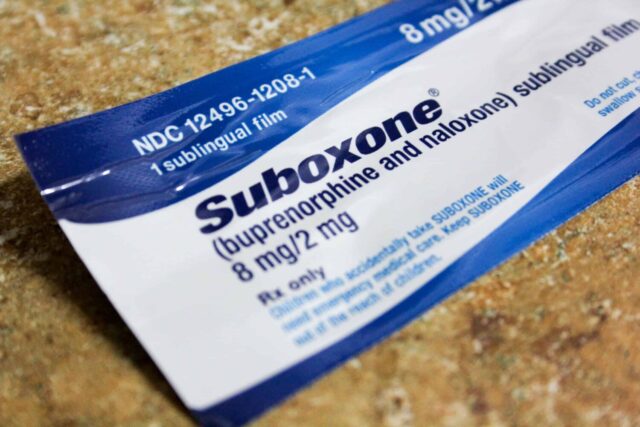
Mental health is a crucial aspect of the recovery process, yet many individuals fail to recognize its importance alongside physical health. When struggling with substance abuse or addiction, it is essential to ensure that your mental health is in good shape to achieve success in treatment.
Consulting a Suboxone doctor can provide the assistance you need. A Suboxone doctor can help treat substance abuse and addiction by prescribing medications like Suboxone (buprenorphine). However, what if your mental health issues are hindering you from undergoing the appropriate treatment?
In this article, we will discuss the role of mental health in Suboxone treatment and why addressing your mental health is vital when seeking help for addiction.
Understanding the Connection Between Addiction and Mental Health

The relationship between addiction and mental health disorders is multifaceted and complex. To begin with, it’s crucial to recognize that addiction is, in fact, a mental health disorder. The Diagnostic and Statistical Manual of Mental Disorders (DSM) categorizes addiction as “a primary medical disorder.”
Furthermore, individuals suffering from addiction are highly likely to experience another mental health disorder at some point in their lives. According to the National Institute on Drug Abuse, up to 50% of people with substance use disorders also struggle with another mental illness.
Depression is the most prevalent mental health disorder associated with substance abuse. Anxiety disorders such as post-traumatic stress disorder (PTSD) and obsessive-compulsive disorder (OCD) are also frequently observed in individuals with addictions.
Statistically, around 50% of Americans will encounter at least one diagnosable mental health condition during their lifetime. However, merely 20% will receive treatment for these conditions. Several factors contribute to people not seeking treatment for mental illnesses, including stigma and fear. However, when addiction and mental health issues are addressed simultaneously through appropriate treatment, it can yield highly effective outcomes.
The Role of Mental Health Treatment in Suboxone Therapy

Suboxone treatment is an effective, long-term solution for addiction, but it should not be the sole approach. Studies indicate that relying solely on Suboxone therapy can increase the risk of relapse. While Suboxone helps manage symptoms and cravings during the brain’s recovery from addiction, it does not tackle the root causes that initially led to drug use.
By integrating Suboxone therapy with mental health treatment, you can achieve optimal results. This combination not only enables better management of cravings and withdrawal symptoms but also addresses any underlying mental health disorders that may have contributed to drug use. Consequently, when you decide to stop using drugs, you will make the choice from a position of stability and balance rather than desperation or self-destruction.
Types of Mental Health Treatment Available
A wide array of mental health treatments is available to help you regain control of your life. Identifying a treatment that resonates with you is crucial, but it must also be personalized and practical.
You may be familiar with Suboxone as a treatment for opioid addiction, but did you know it’s also employed to address other conditions, such as depression? Suboxone is an opioid antagonist medication that functions by inhibiting the effects of opioids in the brain, preventing users from experiencing a high while taking it.
As an opioid antagonist, Suboxone can also counteract the effects of other substances like alcohol and heroin, making it an ideal choice for individuals grappling with substance abuse issues.
Access to Suboxone is limited to doctors specializing in treating these concerns. It’s essential to select a doctor who is genuinely invested in prescribing medications and not merely going through the motions. You need a professional who will take the time to understand you and your needs before recommending a suitable treatment plan!
How to Find a Suboxone Doctor Who Offers Integrated Treatment

When searching for a Suboxone doctor who offers integrated treatment, keep the following considerations in mind:
First, it is crucial to find a doctor with experience in treating addiction using Suboxone therapy. Determine whether your potential doctor has the right expertise by inquiring about their training, work history, and specialization in areas such as addiction or mental health treatment. Ask about their years of experience in practicing medicine.
Second, look for a provider who offers integrated treatment, meaning they provide additional services besides prescribing medication, such as counseling or therapy services. This ensures they can address any mental health issues alongside your addiction problems.
Thirdly, assess your comfort level during the initial consultation with your potential doctor. Consider whether they seem approachable, attentive, and capable of helping you move forward. These factors will guide your decision-making process as you search for the right Suboxone doctor.
Finding the right Suboxone doctor who offers integrated treatment is critical for a successful outcome. Confidant Health is one platform connecting patients with doctors specializing in addiction and mental health treatment. Choose a doctor with the appropriate experience, qualifications, and approach to tapering off medication. Feeling comfortable talking to the doctor and considering logistical factors such as insurance coverage, office hours, and location are also essential.
Check if the potential doctor accepts your insurance plan and consider their office hours and location. Easily attending appointments is crucial for maintaining your treatment plan and progressing toward recovery.
Another critical factor is the doctor’s approach to tapering off Suboxone. Some doctors may have a strict timeline for tapering off the medication, while others may adopt a more flexible approach based on your individual needs and progress.
Takeaway
Mental health is integral to addiction recovery, and its significance cannot be overstated. Substance abuse and mental health disorders are often interconnected, and addressing both issues simultaneously through integrated treatment is crucial for long-term recovery success. Suboxone therapy is an effective treatment option for addiction, but it should not be the only solution. The proper treatment plan must address underlying mental health issues, which can contribute to addiction and increase the risk of relapse.
Seeking treatment for addiction and mental health issues is a courageous step toward achieving long-term recovery. Addressing mental health issues alongside addiction through integrated treatment can increase the chances of success and help you achieve stability and balance in your life. Remember that there is no shame in seeking help, and there is always hope for a brighter future.









